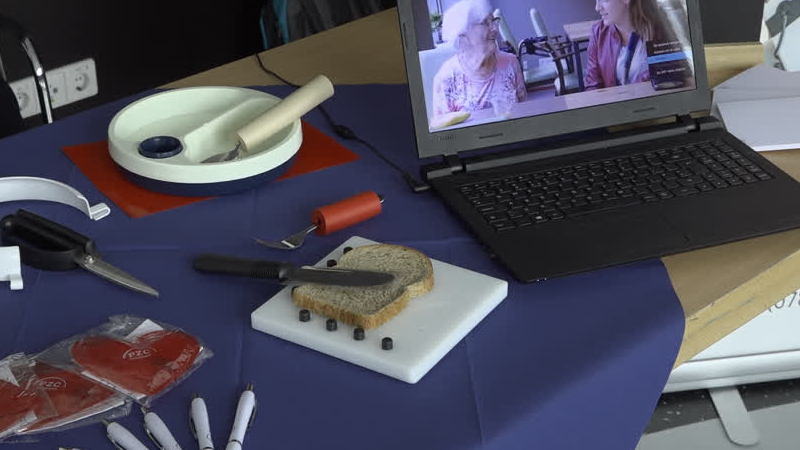More than a hundred Dutch people have a stroke every day: a collective name for a TIA, a cerebral infarction and a cerebral haemorrhage. During a stroke (also called CVA) something goes wrong in the blood vessels of your brain. At that moment, part of the brain no longer receives oxygen and nutrition. Functions suddenly cut out. For example, you start talking confused, get a drooping corner of your mouth or a paralyzed arm. “You either suddenly become very dizzy, have to vomit or see double,” says CVA aftercare nurse Andrea de Haze.
Various consequences
The symptoms are therefore diverse and the consequences of a stroke can also be very different. “In my case the coordination and the feeling changed, but in many other people cognitive problems can arise. It depends on the place in the brain where the damage occurs,” says experience expert Ad van Dongen, who has been active as an NAH coach and board member of the patient association since his stroke.
He was one of the experts who was present on Tuesday to provide information to interested parties. Visitors not only learned more about stroke, but were also able to experience for themselves what it is like when certain parts of the body no longer work. For example, they could spread and cut bread with the non-dominant hand, or follow a course with visual impairments. It was also possible to have a free risk test, which included measuring blood pressure.
Stroke Day
European Stroke Day takes place every year on the second Tuesday in May and is primarily a prevention day. An important aspect of the information market was therefore pointing out to visitors how to reduce the risks. De Haze: “A stroke is a disease of affluence. Being overweight, smoking, excessive alcohol consumption and unhealthy eating puts you at a higher risk of arteriosclerosis, for example. That in turn can increase the risk of a cerebral infarction or cerebral haemorrhage.”
She continues: “So if you keep those risk factors as low as possible, i.e. maintain a healthy lifestyle, you can prevent a stroke in the future.” If you want to know more about stroke, you can attend a webinar on this theme on Thursday evening from 19:00 to 20:30, either physically or digitally. Registration is necessary and can be done via the website of the Albert Schweitzer hospital.
–
View our report of the stroke information market below.
–


